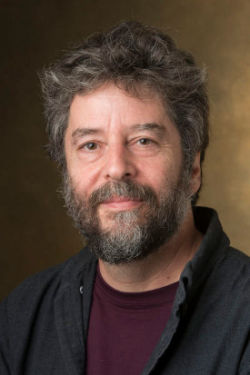English professor Jeff Skoblow examines concept of failure in Honors 120 course
‘The status quo is the epitome of success, the institutionalization of the fear of failure.’
English professor Dr. Jeff Skoblow has opened up a course on a much feared, often experienced topic: failure.
The course is being offered through the Honors program and is being tackled in various lights through poetry, fiction, and non-fiction. The class will use classics like Heart of Darkness and The Death of Ivan Ilyich. Additionally, the class will utilize 19th and 20th-century poetry, as well as some nonfiction that focuses on the environment.
Taught in the Honors program as Honors 120, Dr. Skoblow originally conceptualized this course in an English 101 class, where he explored failure with a freshman class over a period of about three weeks. With a topic as large as failure, the class will examine failure at an individual level as well as a collective failure. For example, one could argue Heart of Darkness is a collective societal failure in the form of imperialism. The Death of Ivan Ilyich, on the other hand, could be seen as an example of individual failure – Ivan Ilyich climbed the social ladder “to success” and still felt miserable until talking with his caretaker, a peasant boy by the name of Gerasim.
Dr. Skoblow’s course questions conventional notions of failure and success. One of the many goals of this course is to draw attention to the idea that failure is an inescapable part of life. To do so, Dr. Skoblow analyzes different variations of failure. He says, “In fact, failure is essential, not something to be avoided, but something essential to learn. If you never fall down, you never learn to walk.” He notes that many students take this course with a desire to understand failure and how to deal with it, an important skill to have.
In discussing the material, Dr. Skoblows says the possibilities on what to read are endless. Even in stories of success, failure is present lurking in the background, in the form of the successful evasion of failure.
“Our culture and in particular our particular school experience gives us a very impoverished notion of failure, I would say. It’s like failure is the opposite of success, so if you get the grade that you set out for, you have not failed; that’s kind of the message. But, of course, people don’t always feel that way and it’s hard to recognize that they might have achieved the grade they wanted, but failed to have an experience that was meaningful for them,” says Dr. Skoblow.
When explaining the course and its aims, Dr. Skoblow states his aim is to not just have the students read and talk about failure, but experience it directly. To that aim, he has the students imitate D. H. Lawrence, as well as write a sestina or villanelle, which are poems of different styles. Additionally, the class attempts to learn to juggle in an exercise, which Dr Skoblow says creates rampant failure in a low-risk environment and setting.
In his office, Dr. Skoblow has hung a piece of paper entitled “Aphorisms for Jeff” with words of wisdom about failure scrawled on it. “The status quo is the epitome of success, the institutionalization of the fear of failure” and “The accomplishment of failure is not an easy task; we learn more from falling down flat on our face than a mere stumble” are of two pieces of prose on this paper.
Our responses to failure or success are key, Dr. Skoblow notes. The challenge, he says, is learning to recognize the failures and successes, that our response is sometimes what turns what feels like a failure into success through learning.
In dealing with the massive scope that failure is, the honors students will taking a trip to the Loop in St. Louis, slated for Nov. 5. Dr. Skoblow’s goal in that fieldtrip is to analyze what aspects of the Loop could be considered a failure, as with gentrification, or what could be considered successes, such as businesses.
Honors 120: On Failure is sure to be an interesting course that examines something everyone knows too well and aims to teach students how to deal with it as an essential, inevitable life experience.
Filed Under: Human Interest













